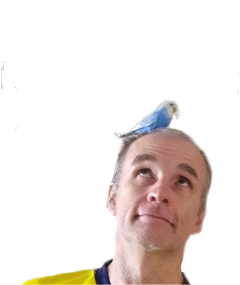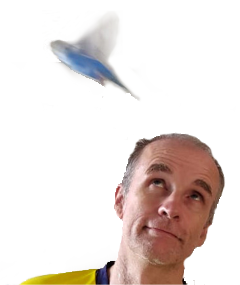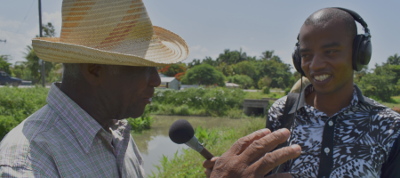WhatsApp's new policy could be hazardous to the health
Aug. 26, 2016
I received a call from an unknown number in Mexico. Before I could say "bueno" a woman's voice belted into my ear: "Oh my god, help me. Help me. He's says he's going to kill me..." There was a whinny of terror, and then a man screamed down the line.
"OK, mother fucker. Here's what you're going to do. I've got her, and I'm going to cut her fucking throat right now. Right now!" The woman screamed in the background. "Do you want her dead?"
My blood turned cold. I raced to think. I was still in pyjamas, eating breakfast in my kitchen in Canada, and now here I was, plunged into the middle of a brutal kidnapping. A woman's life seemed to be in my hands. How? A wrong number? Mistaken identify? Who was she? Who did they think I was?
"Ok. Ok. Calm down. Just tell me what I have to do." I repeated this several times, trying to calm myself. Trying to buy time to think. How would I save a woman I didn't know at 3000 kilometers distance? With the woman sobbing in the background, I heard the man tell me he was going to give me a bank account number where I could send money. "But I'm in Canada," I pleaded. He wasn't phased.
"Ok, you're going to send me a million dollars."
The woman came back on as if she'd grabbed the phone. "Oh my god, he's got a knife! Please. Please save me."
"Don't worry," I told her, trying not to sound panicked. "I'm going to work something out."
The man broke back on. "If you want your daughter to live, you're going to do exactly what I tell you... Mother fucker."
Wait a second. I don't have a daughter! Ok. So it's clearly a case of mistaken identity. That's good. But wait again. If it was, wouldn't the girl have recognized my accent. I gave myself the luxury of another thought.... that million Canadian dollars sounded like an awfully round number. I put on my most pathetic voice: "Please, just let me talk to Rosa Alba."
"Fuck that. I'm going to kill Rosa Alba right now."
Except he didn't. Instead, he continued making threats, peppered with more "mother fuckers." He repeated the name Rosa Alba several times, almost sounding pleased to have a name, as if he had something over me. I went silent for a bit, letting him rant. When he ran out of steam, I thought I heard he and the woman whispering in the background. "Ok," I decided. "This is a hoax." I "mother fuckered" back at him, and hung up. You can hear some of the exchange here:
(audio coming soon)
This kind of thing happens all the time in Mexico and Central America. It's not hard to come by a phone number and spin a yarn like this for money. So little had been invested on their part that a million dollars could easily have been negotiated down to a few hundred. Where they got my number is inconsequential, perhaps the greasy-looking couple in the phone shop in Chiapas who sold me the chip on my last trip to Mexico.
In this case, their ploy was weak. But imagine if they had actual information about me, my name for example, or the identity of an actual family member. In my first few minutes of terror, I might easily have been convinced the woman was my sister-in-law.
The internet makes it incredibly easy to get that information. Facebook, for example, reveals that I live in Canada but have family members back in Mexico. Our relatives have indeed received calls from extorsionists claiming to be Canadian immigration police, requiring thousands of dollars to liberate us from the airport. The relatives almost paid, non-plussed for a moment that the caller knew who we were. An acquaintance of mine from El Salvador, currently living in the US, received an even more terrifying demand, this time over facebook messenger. The sender had kidnapped his cousins, it said. To prove it they sent him their names and addresses. They also sent some grisly photos of mutilated bodies -- "other victims", they claimed -- to show they were serious. Friends tell us similar stories all the time.
Unfortunately, many victims of extortion make it easy for their aggresors. They liberally douse their social media accounts with personal data, and talk freely with strangers online. By contrast, my wife and I are meticulous about keeping our private lives off the internet. We don't name our kids and rarely post their photos. We don't reveal our neighbourhood or the places we frequent. And we keep our phone number far away from facebook.
But now it looks like WhatsApp may do that for us anyway. A new policy announced on Aug. 25th, states that WhatsApp will now share users' phone numbers and contacts with the "facebook family of companies" in order to send us advertisements, (or in their creepy PR-speak: “to communicate with businesses that matter to you too.”) As far as I understand it, this means that anyone you speak to over WhatsApp will start popping up in your recommended friends and search results on facebook. At the other end, your WhatsApp contacts will have easy access to all the information you posted about yourself. This may not seem like such a big deal in North America, where WhatsApp is not widely used. In Latin America, it is the way to communicate. Senior government officials give interviews over WhatsApp. Prepaid phone cards are priced on how many WhatsApp messages you can send. For families separated by distance, such as mine, WhatsApp is a vital lifeline. It is much more common to add all and sundry to your WhatsApp contact list in Mexico, because it is so ubiquitous. And of course because WhatsApp promised they would not share your information. Back then, a WhatsApp account was just a phone number. Now it is a telephone number plus all the information an extortionist or kidnapper could dream of to use against you.
Talk about communicating "with businesses that matter to you."



